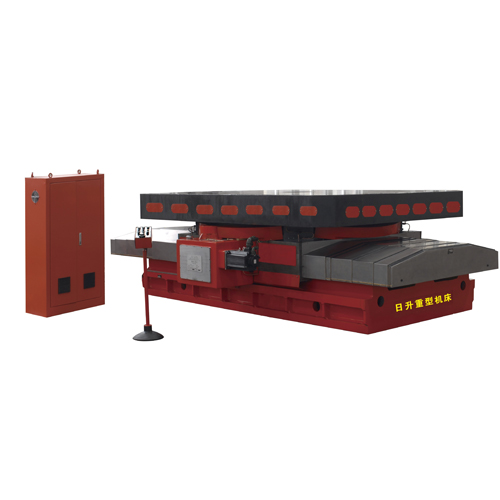How to Choose the Right CNC Horizontal Lathe Machine to Meet Production Needs
In modern manufacturing, CNC horizontal lathe machineas are widely used as efficient and precise processing equipment for various parts. However, how to choose the right CNC horizontal lathe machine to meet production needs is an important decision every company faces. This article will explore the key factors to consider when selecting a CNC horizontal lathe machine.
Identify Production Needs: The First Step in Choosing a Suitable Horizontal Lathe Machine
Before choosing a CNC horizontal lathe machine, companies must first identify their production needs. This includes detailed understanding of the types of parts to be processed, size range, accuracy requirements, and production efficiency. Identifying these needs helps companies determine the processing capabilities and specifications required for the lathe. For example, if the parts produced are large or require high-precision processing, choosing a CNC horizontal lathe machine with corresponding processing capabilities will be necessary. In-depth analysis of production needs ensures that the purchased lathe can meet actual processing requirements and avoids subsequent production bottlenecks.
Processing Precision and Stability: Key Standards for Choosing a Horizontal Lathe Machine
The processing precision and stability of a CNC horizontal lathe machine are crucial factors that cannot be ignored in the selection process. Companies should prioritize lathes with high-precision spindle systems and advanced control systems to ensure the processed parts meet accuracy requirements. Additionally, the rigidity, thermal stability, and vibration resistance of the lathe are key indicators of its stability. These factors directly affect the lathe's processing performance and production efficiency. For instance, CNC horizontal lathe machines with excellent rigidity and vibration resistance can maintain processing precision during long-term operations, ensuring consistency in part quality.
Degree of Automation: A Key Factor in Improving Production Efficiency
With the development of intelligent manufacturing, the degree of automation of CNC horizontal lathe machines is gaining increasing attention. Highly automated lathes can significantly boost production efficiency and reduce manual intervention. For example, features such as automatic loading and unloading, and automatic tool changing enhance the automation level of production lines, making the production process smoother and more efficient. When selecting a lathe, companies should focus on its automation features to fully leverage the lathe's production potential, thereby improving overall production efficiency and reducing labor costs.
Cost and After-sales Service: Necessary Considerations for Comprehensive Evaluation
When choosing a CNC horizontal lathe machine, companies should also comprehensively consider cost and after-sales service. The purchase cost, maintenance cost, and energy consumption of the lathe are important factors. Meanwhile, quality after-sales service ensures the stable operation and timely repair of the lathe, reducing production risks. For example, choosing a supplier that provides excellent after-sales service ensures prompt technical support in the event of a failure, safeguarding production continuity and efficiency.
Choosing the right CNC horizontal lathe machine is critical for a company's production efficiency and product quality. Companies should identify their production needs and comprehensively consider the lathe's processing precision, stability, degree of automation, cost, and after-sales service to make an informed decision. Through rational selection, companies can ensure that the lathe meets production needs, improves production efficiency and product quality, thereby providing strong support for ongoing development.
-

Lathe Operation Specifications
1. The operator shall wear the protective equipment correctly according to the regulations. Before processing the old workpieces, remove other things except the processed ones.2. The used/clamp/measur... -

What Is a Hydrostatic Rotary Table?
About Hydrostatic Rotary TableHydrostatic rotary tables, commonly referred to as hydrostatic turntables, are high-precision, high-stiffness machine tool accessories. Hydrostatic rotary tables integrat... -

Cutting Capabilities and Machining Operations Performed on CNC Floor Boring Machines
In the world of manufacturing and heavy-duty industries, precision and accuracy are paramount. CNC floor boring machines have revolutionized the way large components are machined, offering enhanced cu...





